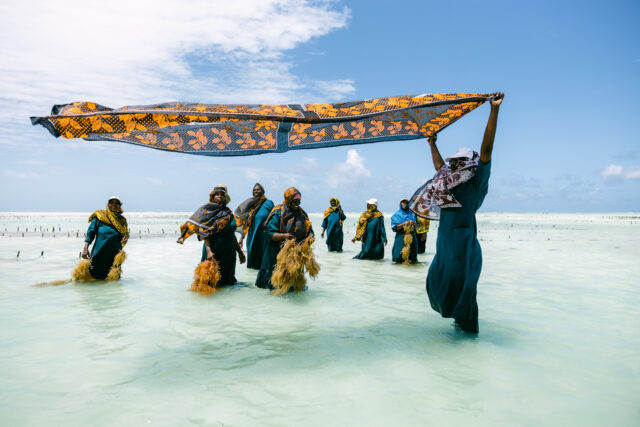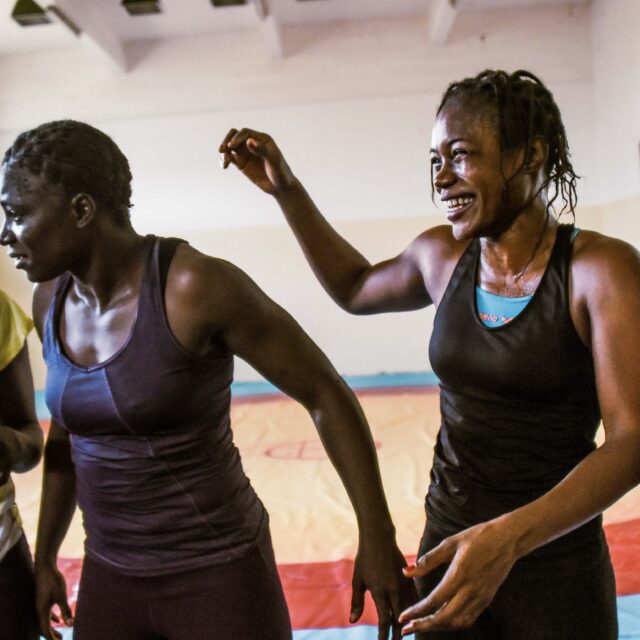Meet the seaweed farmers of Zanzibar. These women are pioneers in a profitable industry, which was previously dominated by men. They’ve used their profits to support their community and uplift women and girls in Zanzibar’s society.
Now, that all could change. If they can’t adapt to the very real impacts of climate change, this $8 million industry, and these women’s livelihoods, are at risk.
But these women aren’t giving up.
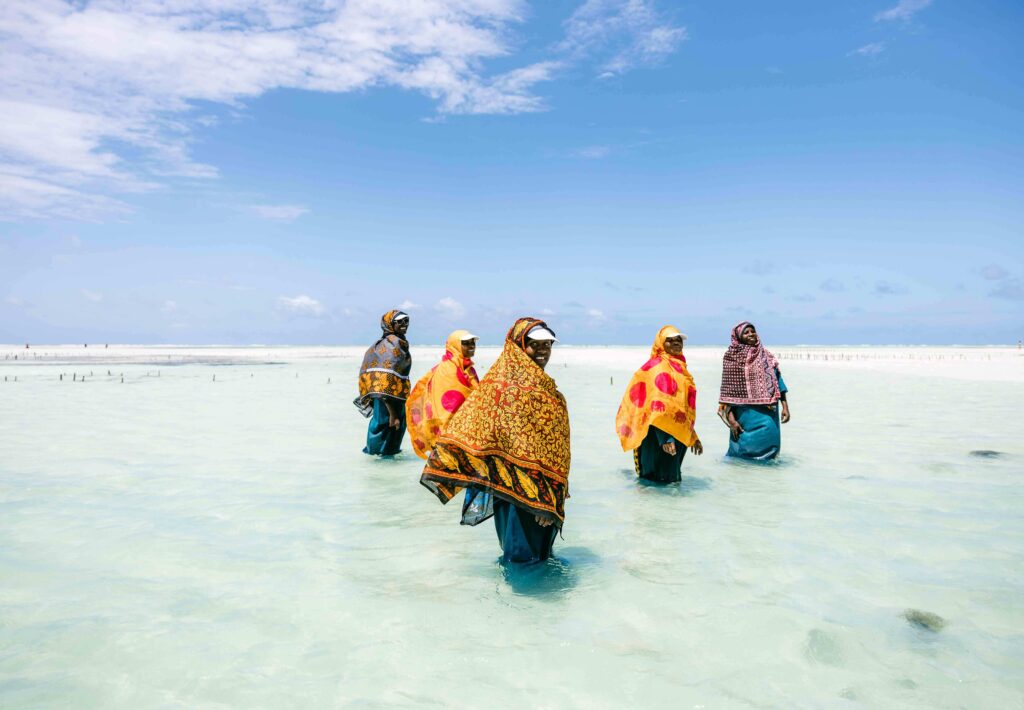
How these women broke barriers
Seaweed farming began in Zanzibar, Tanzania, in the 1980s as a male-dominated industry. When men started abandoning the industry to work as fishermen, women stayed. Seaweed farming, unlike fishing, was accessible in shallow waters: it didn’t require them to know how to swim or own a boat.
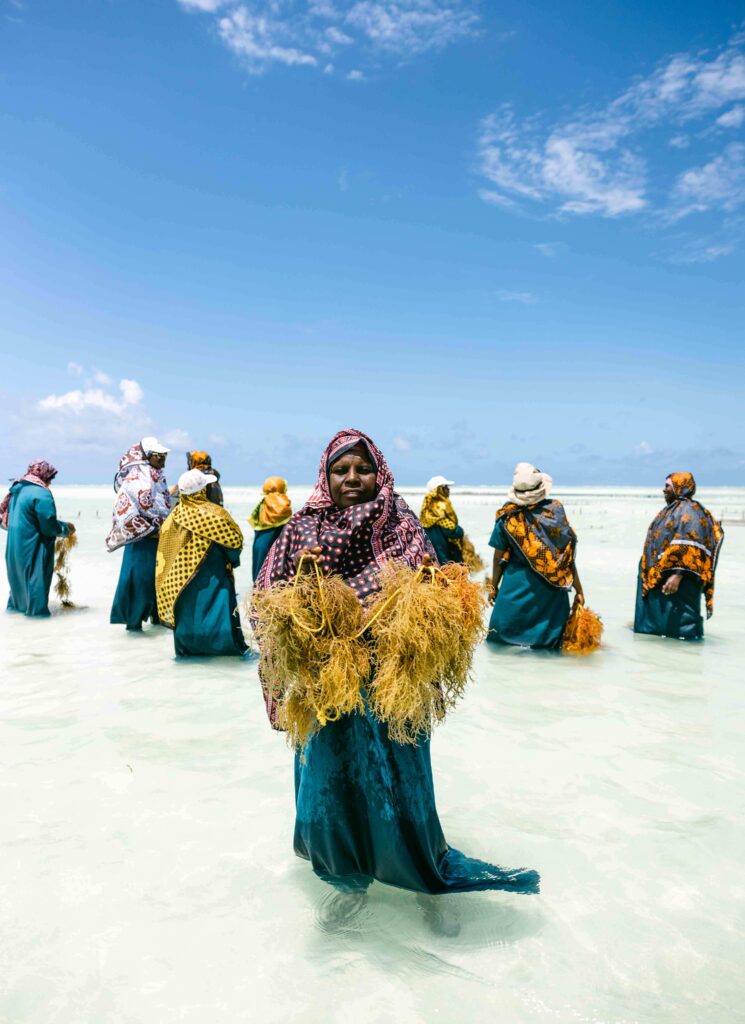
At the time, society whispered that “this is the end of good manners.” There were concerns that women were not staying home and no longer fully relying on their husbands for money. But every household soon began to experience the benefits of the women’s work. From the ground up, these women grew the industry to eventually contribute roughly $8 million to Zanzibar’s economy at its peak.
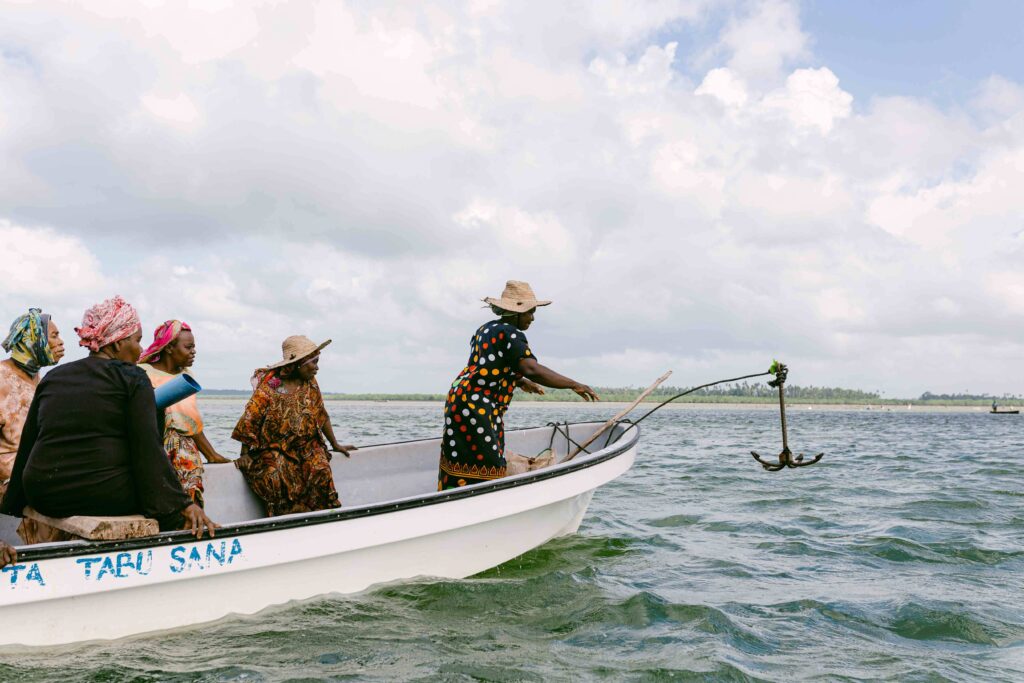
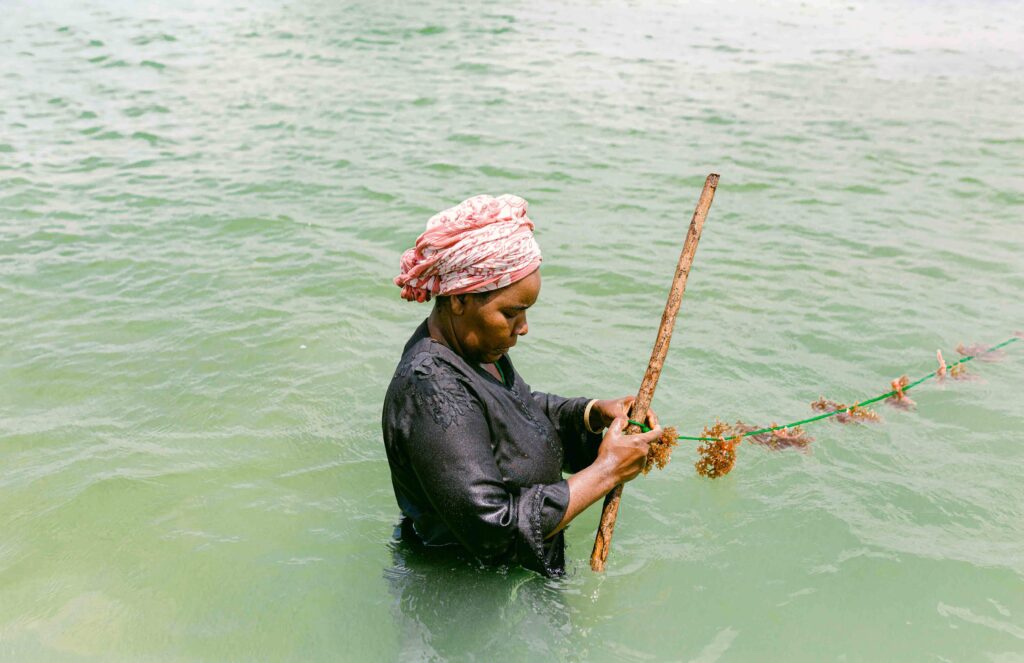
Mwanaisha’s grandmother was one of these women. Alongside farming, she taught Mwanaisha and other girls the trade, almost 30 years ago.
Now, every morning, Mwanaisha walks out to the low tide sea with a group of women seaweed farmers, their heads protected with traditional kangas and caps from the blistering hot sun.
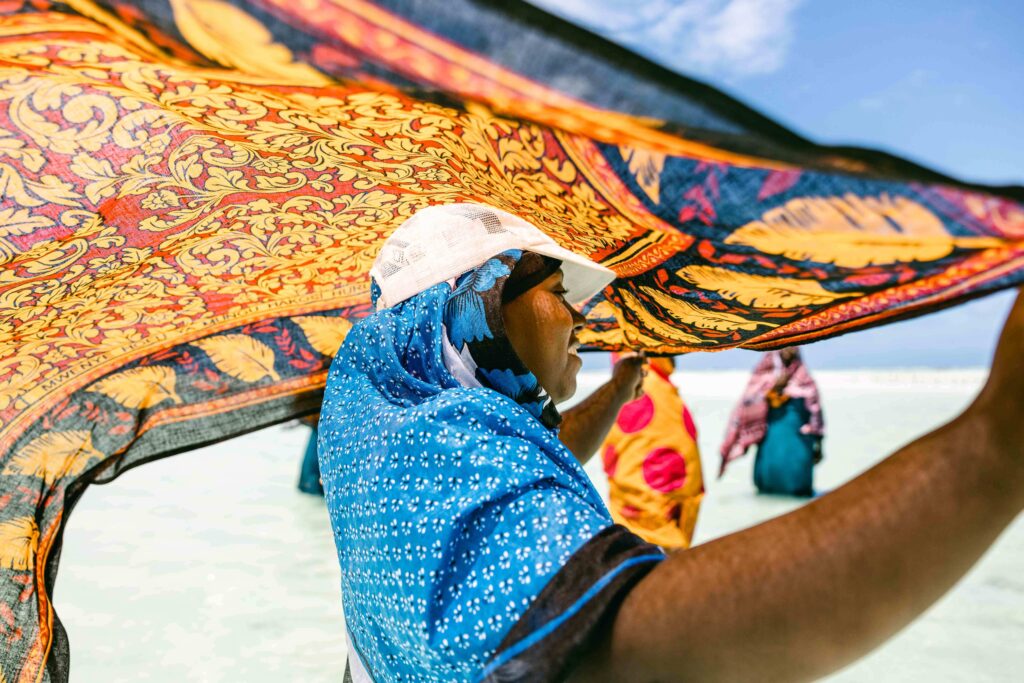
They tend to their farms by combing through tangled nests of seaweed. They harvest ones that are ready while another group ties new sapling together on a nylon rope that’s attached to a wooden stake.
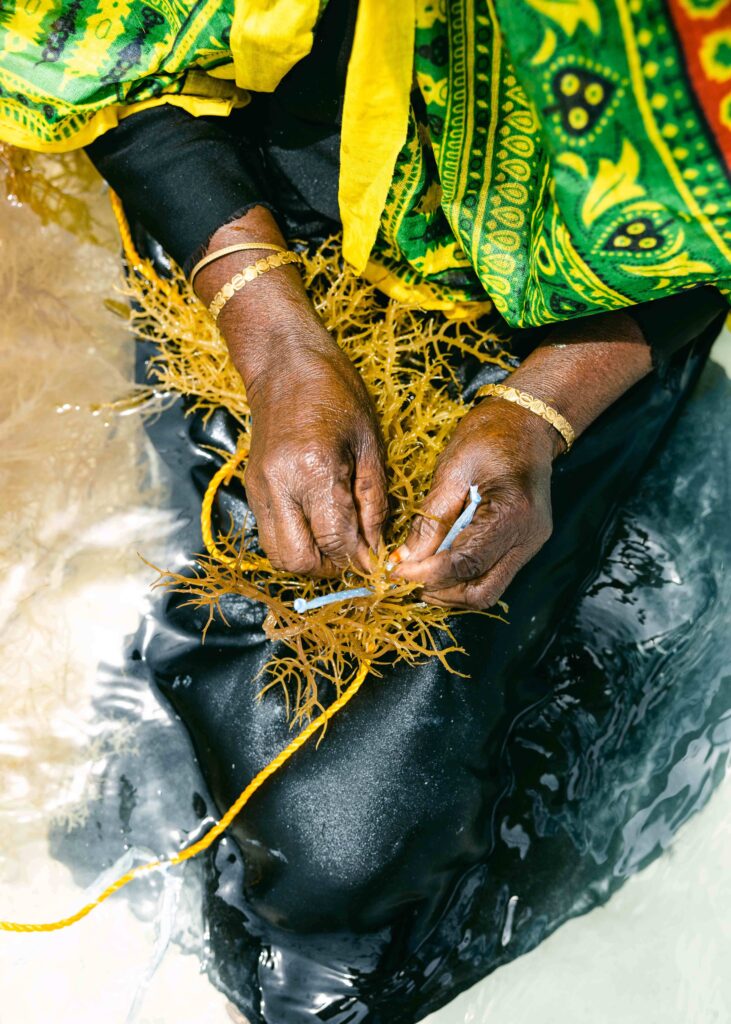
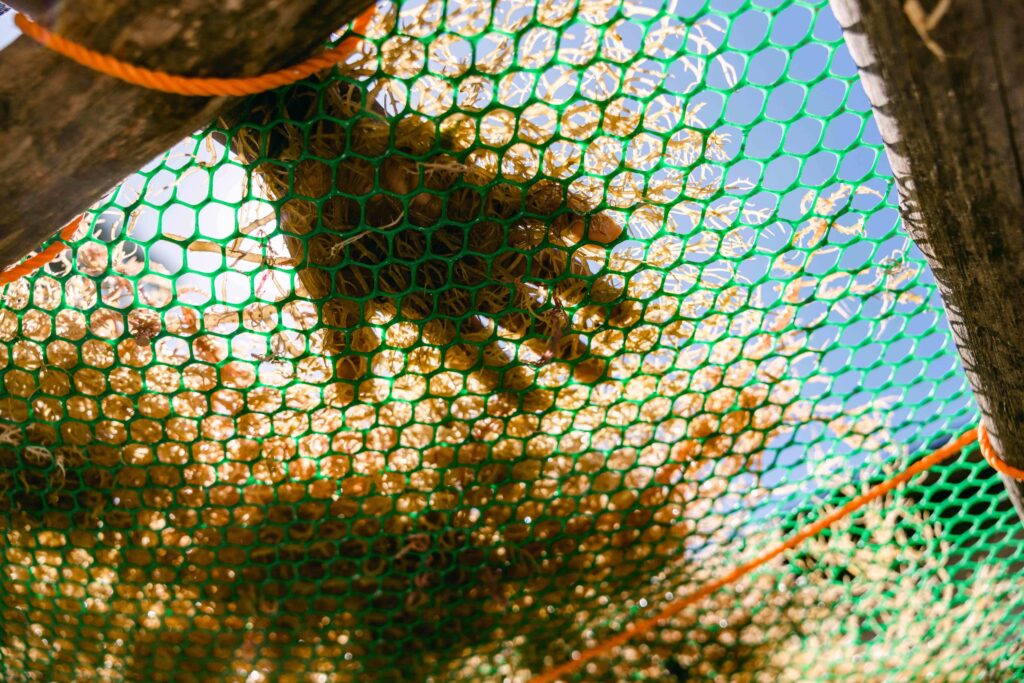
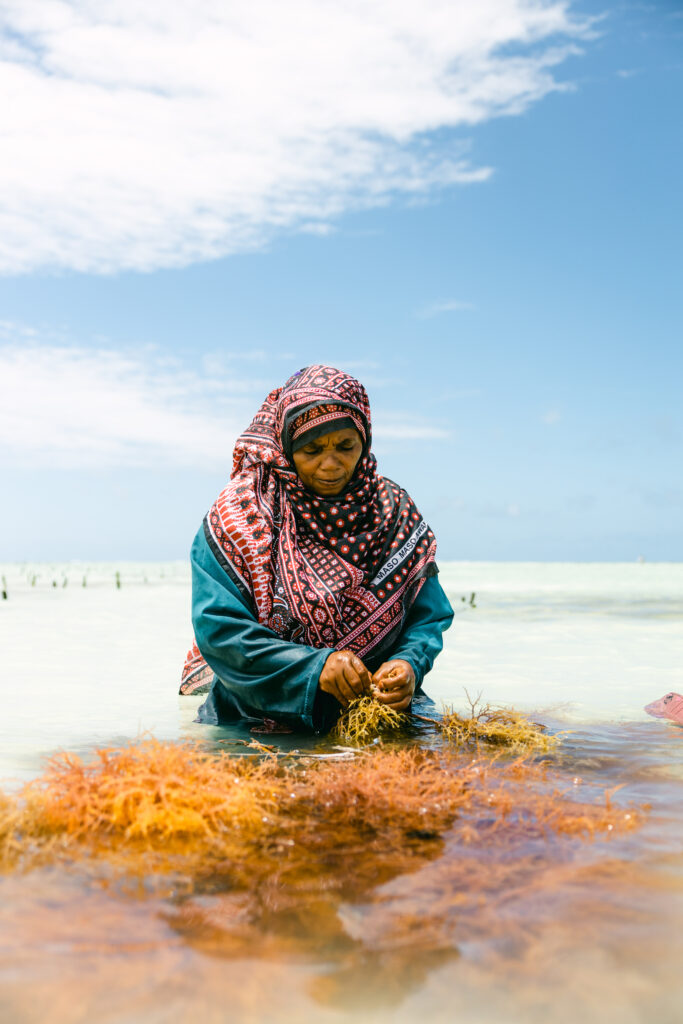
Their work has changed their community
For Mwanaisha and many women like her, this job was transformational. From her earnings, she was able to support herself and her family. Through her savings, she was able to build a small house that she now rents out.
“Seaweed farming gave us women in Paje our independence, I would want the same for the next generation.”
“I can say that seaweed farming lifted us up as women in Paje. It gave us a role in society, and for the first time, I remember we were independent and free to do what we wished,” Mwanaisha said.
“Seaweed farming gave us women in Paje our independence, I would want the same for the next generation.”
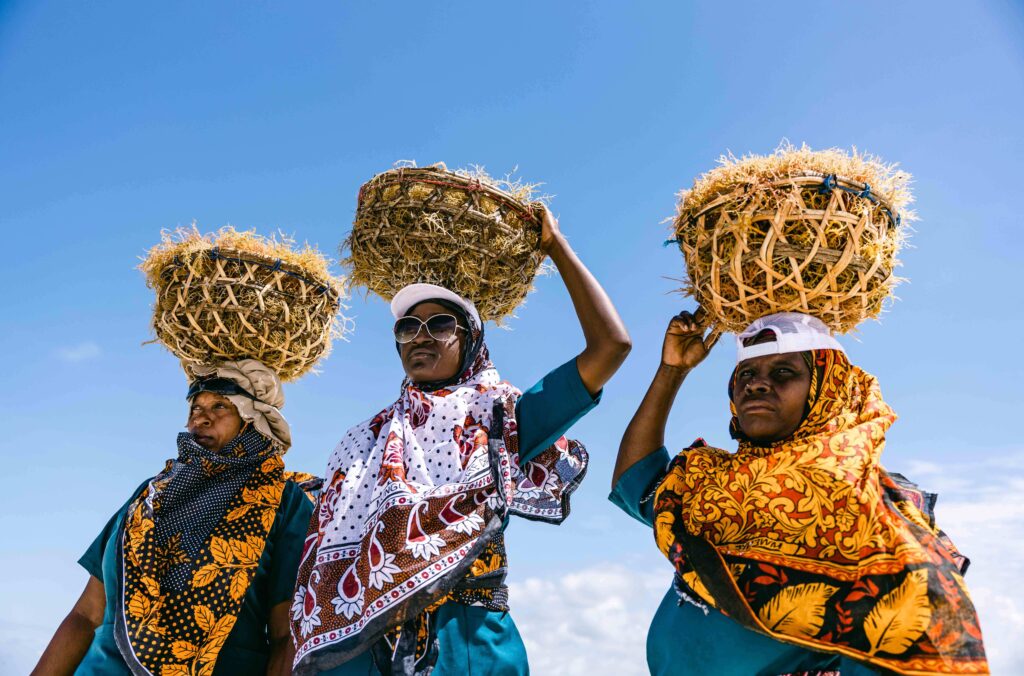
They carry back freshly harvested seaweed in woven baskets to take home and dry them out in the sun.
After drying, it’s then grinded into fine powder. Which can then be used to make organic soaps or sold for export, where it’s used worldwide as a binder in foods, cosmetics, and medicines. In a good year they can harvest eight to 10 times. Earning roughly around $60 to $85 a month.
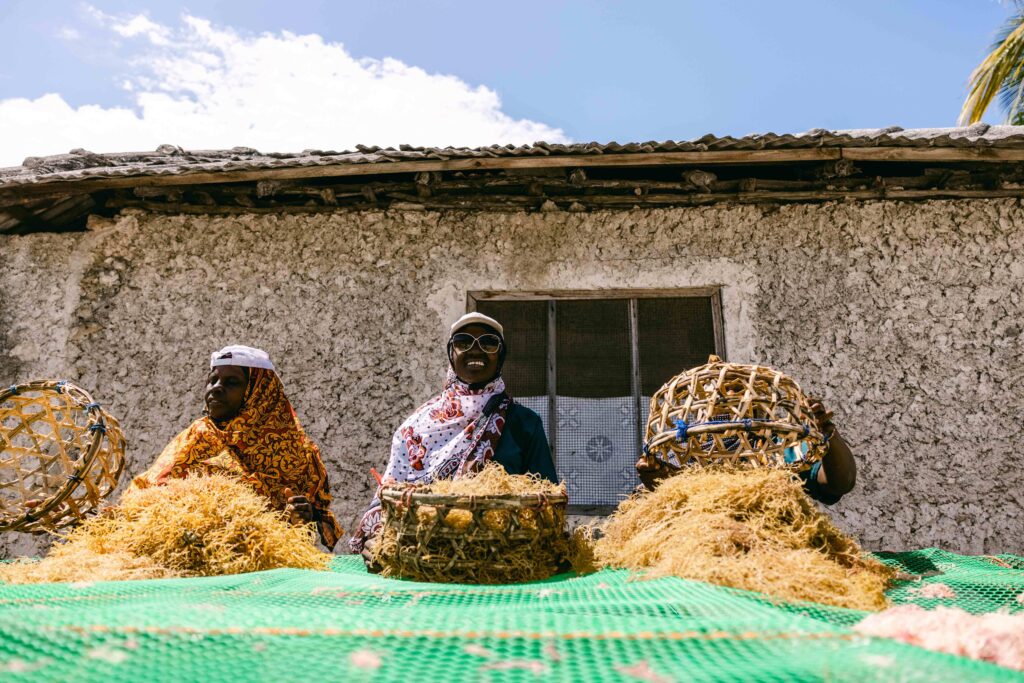
With this money, the women support their families. They pay for their children’s school fees and medical visits. They updated their houses by switching their roofs from leafy roofs to corrugated iron. This job has also given them greater decision-making power in the community since they now contribute a significant amount financially.
But that could all change…
How the climate crisis could disrupt it all
Today, the seaweed industry is in decline.
“Ten years ago, we noticed our plants growing more slowly or dying,” Mwanaisha says.
As sea temperatures rise every year, the shallow water is becoming too warm for good quality seaweed to grow. Instead, the seaweed is becoming infected with a disease called ice-ice, which causes it to harden, turn to an icy white color, and rot.
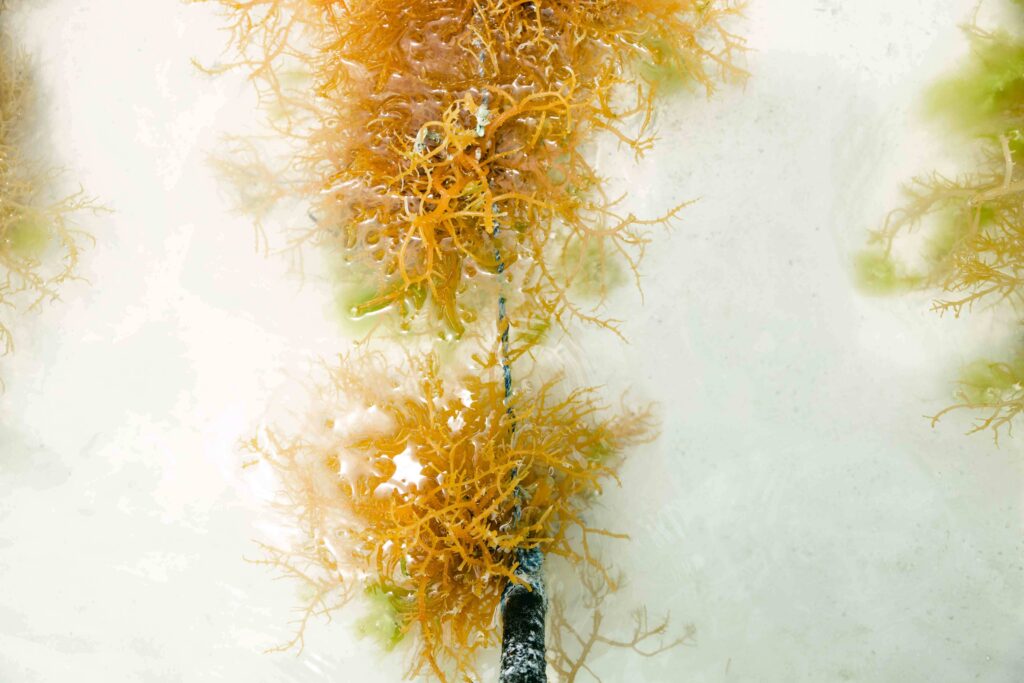
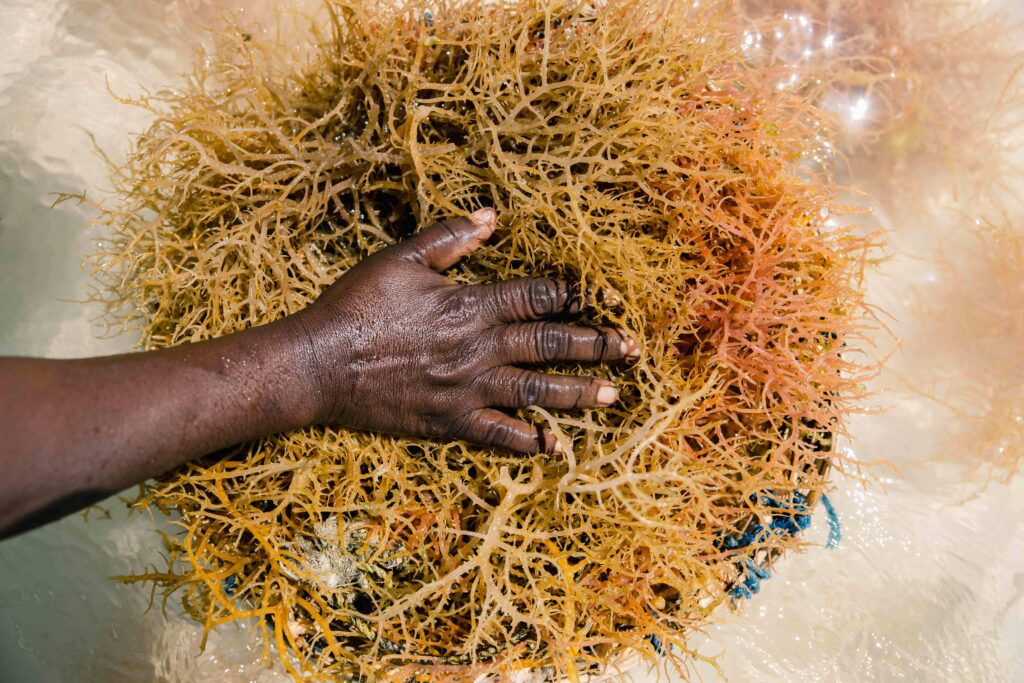
Ten years ago, we noticed our plants growing more slowly or dying.”
The women work with local marine scientists, who help explain the climate-driven changes, provide resources, and serve as a bridge to the government and other organisations. These scientists have suggested a potential solution: move the farms to deeper waters. This would make sense, since good quality seaweed thrives in cooler temperatures.
But this comes with another problem: Many of these women seaweed farmers cannot swim or operate a boat. And so, the practice, which for the past two decades has been led and championed by women, is once again becoming more reliant on men.
These women aren’t giving up

“I want to motivate our girls to enter the seaweed business.”
Although the future is uncertain, these seaweed farmers continue to find ways to keep going. As true innovators, they have now expanded into entrepreneurship: making seaweed-based products to sell to both tourists and locals. They bake seaweed snacks, manufacture organic seaweed soaps mixed with different spices found on the island, and have developed seaweed scrubs and oils.
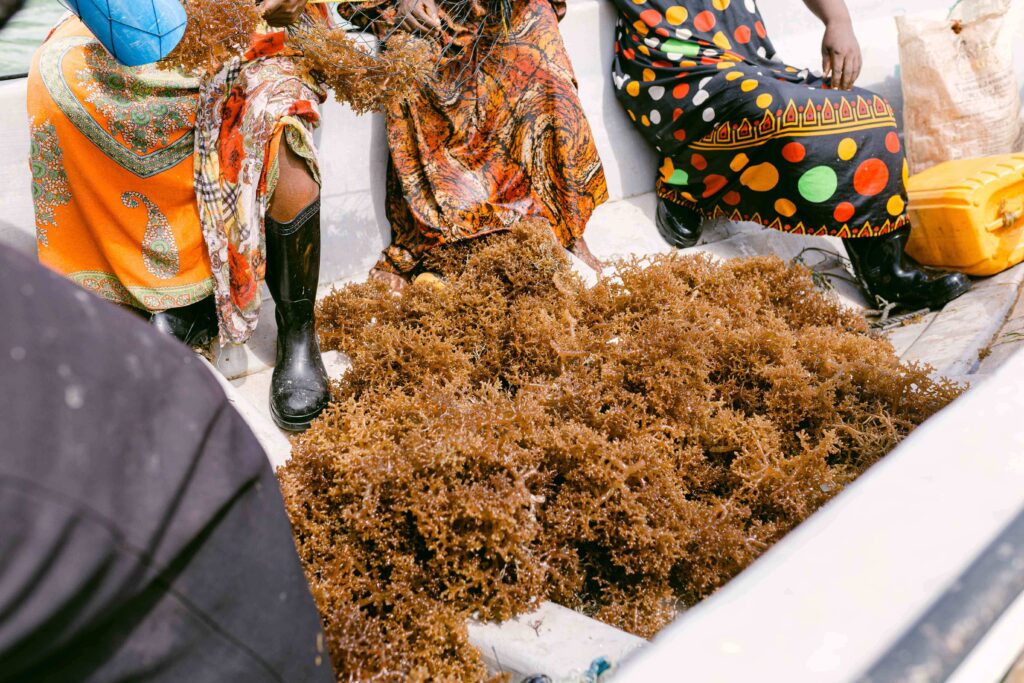
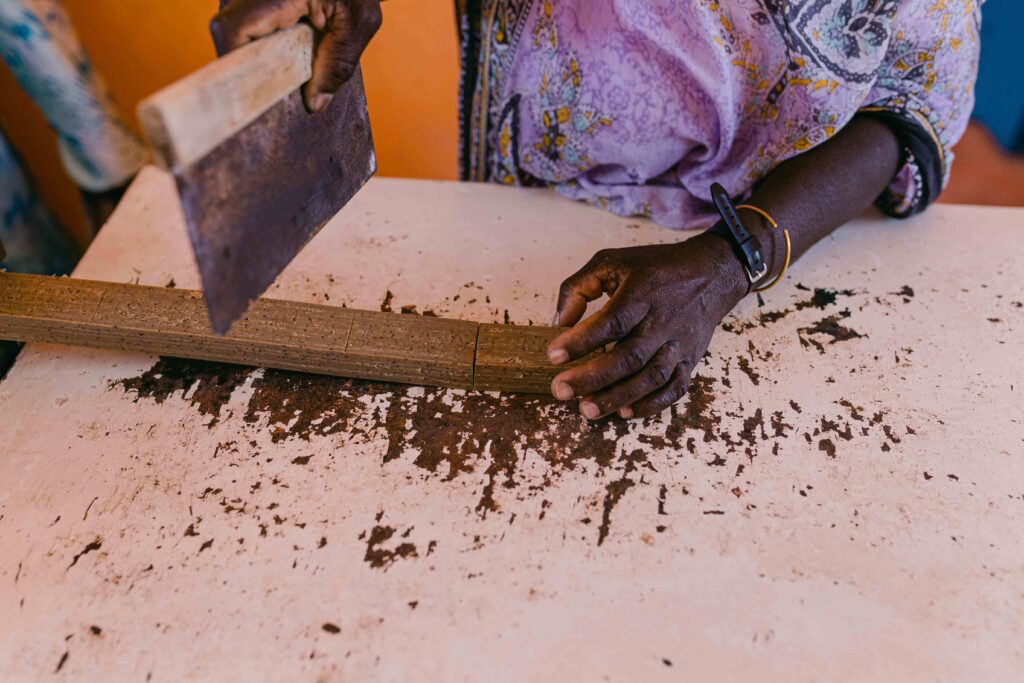
While so many people have doubted they would succeed in this business, they have continued to fight against all odds. Their voices are louder than ever and they show no sign of slowing down.
And Mwanaisha sees potential for the younger generation of girls to grow the industry.
“If the future of seaweed is in deeper waters, then it’s time for young girls to be equipped with tools and skills to work in the fields. I want to motivate our girls to enter the seaweed business.”
How you can help, no matter where you live
“I hope to see more initiatives taking place to make sure that this industry doesn’t fade out. Because that would undo a lot of the progress women have contributed in our community,” Mwainasha said.
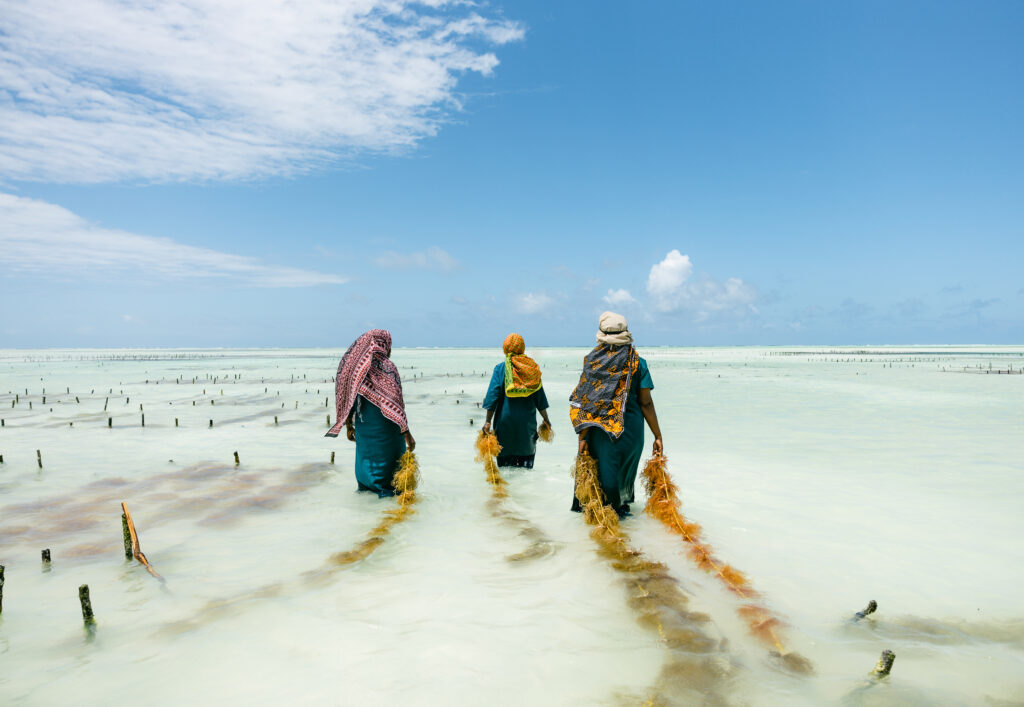
The world needs to adapt to the very real impacts of climate change — people’s lives and livelihoods depend on it. That adaptation requires big investment from governments.
Add your name to our petition to demand more money for Africa’s green transition plan and help make sure women like these seaweed farmers do not lose their hard-earned gains.
